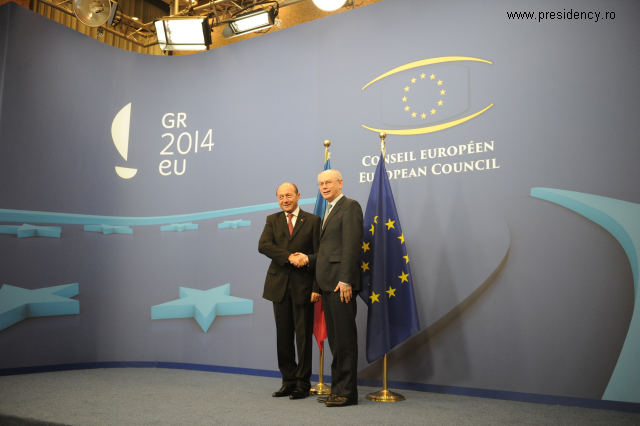Romania and Schengen Accession
Romania wants to join the Schengen Agreement by the end of this year, more precisely in October at the latest, said president Traian Basescu in Brussels, during a meeting he had with the European Council President Herman van Rompuy. Traian Basescu:

Roxana Vasile, 17.01.2014, 13:31
Romania wants to join the Schengen Agreement by the end of this year, more precisely in October at the latest, said president Traian Basescu in Brussels, during a meeting he had with the European Council President Herman van Rompuy. Traian Basescu:
“ This is not just an objective for the country, but also a personal objective, as on December 21st my term in office ends. Because of domestic developments, and not only, I say October is the month when this will happen. It is very difficult to negotiate with the Member Countries that still object to our accession, now, in the run-up for European Parliament elections.”
The Schengen agreement, which mainly focuses on ensuring security on the area’s borders, is not about the free circulation of European citizens, as this is a right that both Romanians and Bulgarians earned back in 2007, when their countries joined the European Union. Moreover, starting January 1st 2014, they have the right to work in any of the EU Member Countries, freedom of movement being one of the fundamental rights ensured by the EU, which cannot be negotiated, as the main European political groups and EC representatives have stated. All this against speculations by part of the media and politicians in the developed countries regarding an alleged invasion of Romanians and Bulgarians, who, they say, prefer to leave their countries in order to benefit from social aid in their host countries. All Europeans, with no exception whatsoever, have the right to move freely with in the EU, said EC Vice-President Viviane Redding.
Moreover, the current laws regarding freedom of movement, including access to social benefits, are fair. In a debate held at the European Parliament, MEPs from Poland, Romania and Bulgaria stood for the observance of this fundamental right and warned that such a discourse, saying that these citizens are only interested in benefiting from social security in the countries they choose to live in, cannot be tolerated. At the same time, freedom of movement benefits the countries these people go to work in. Therefore, the European Parliament passed a resolution against any attempt at limiting the free movement of European workers inside the European Union, which enshrines the principle of equal treatment for all EU citizens.






























